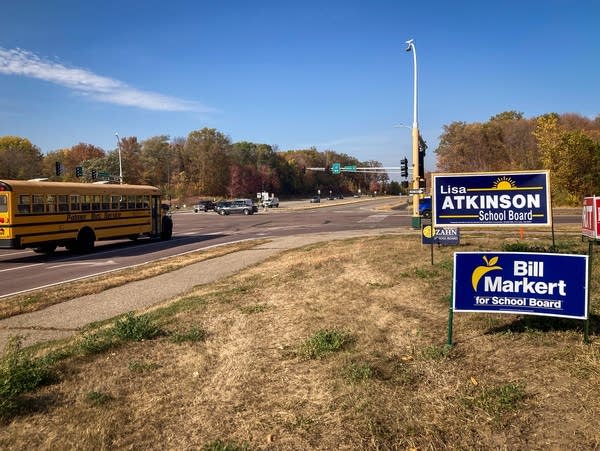How national politics are changing Minnesota’s 2022 school board elections

Political signs for the Prior Lake School Board race are seen at the intersection of Eagle Creek Ave. NE and 140th St. NE in Prior Lake, Minn. on Oct. 11.
Elizabeth Shockman | MPR News
Go Deeper.
Create an account or log in to save stories.
Like this?
Thanks for liking this story! We have added it to a list of your favorite stories.


